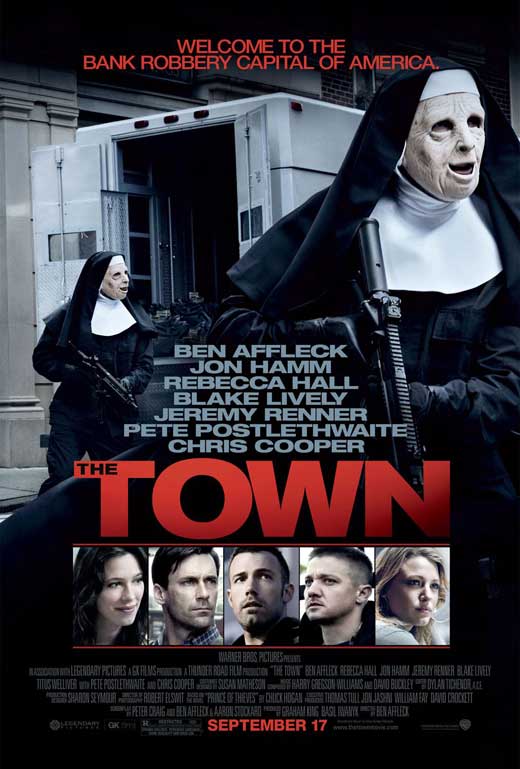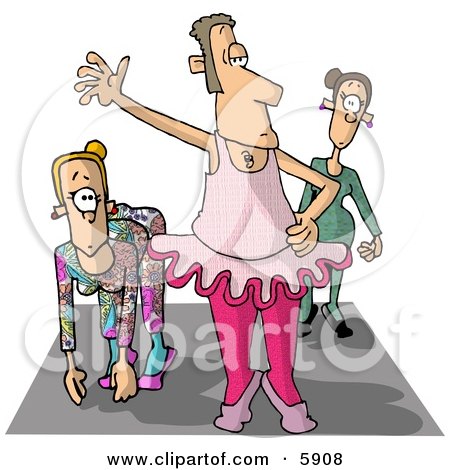The lecture hall was packed. One of the students was down at the front playing the piano as the rest of us, about a hundred and thirty or so, stood by our desks singing the old hymn, Here Am I. At the end of the third verse, our Professor started exhorting us.
"Who will go where Jesus calls? Will you go?" He said pointing one of the students in the middle row. "What about you?" The piano continued softly in the background. It was a charismatic Bible College, and such decisions were never made without music. One by one, my classmates started shouting. "I'll go. Send me, Lord!" It was no surprise to hear my voice mingle in with the rest. Despite the theatrics, it was a powerful moment. I was a first year Bible College at the time, but I'd been 'God's boy' since I was a little kid. I was ready to go and make a difference in the world. I had been 'called', and I was ready to 'go forth.'
With a send off like that, and there were a great deal more of them, it's impossible NOT to be disappointed when you finally do enter the valley of disdain, the one Fundamentalists refer to as 'the world.' Being a youth pastor was a great deal of fun, a lot of hard work, but it wasn't what I expected. Mostly because it just felt like a job. A stressful job, true enough, especially when it came to dealing with the older children. (I'm referring to the adults. And yes, when you pastor long enough, it is often difficult to distinguish the kids from those who meet the age requirements for youth group.) Maybe if we'd all been hooked up to our Ipods back then we could have played the necessary, heartwarming soundtracks to encourage positive behavior. Or dimmed the lights in the daily workplace for a better ambience. Maybe then, going 'into the world' would have felt more… genuine. As it was, the expectations of being a pastor bordered on silly. The regular attenders expected the pastor to be holy, a shining example, the one person who was living the way they were supposed to, believing and saying all things correctly, always in love, always gentle and strong and wise, but never aggressive or reactive. The pastor was more than a person, he or she was an office, a holy office with near mystical abilities.
Back then, it was hard to express to people outside the fundamentalist movement what a superstar the pastor was in that world. In many of the churches that I was affiliated with over the years, it wasn't (and still isn't) a stretch to compare the pastor to a monarch, in both the expectations and the way those who held the office were regarded. Yet when the big names in the charismatic world started to 'fall' from grace, like Jimmy Swaggart and Jim Baker, and the subsequent ripples that flooded the charismatic movement, there was little or no introspection within the movement. Externals were blamed, with an emphasis on the demonic and high sin ratio of either the pastor or the congregation. No one questioned the extreme nature of the established hierarchy. It would be akin to taking someone raised in the slums and giving them millions of dollars, then surrounding them with people hanging on their every word and women throwing themselves at their feet, and being puzzled why that person dove into a hedonistic lifestyle. (Like a number of our professional athletes)
What's shocking is that thirty years have passed, and we haven't grown any smarter. We still talk about pastors being "called" or "led" to their vocation. We give them (and their career choice) a mystical origin, a road in their life that we do not share, and by doing so, inherently grant them greater authourity to speak into our lives. It is the force of that experience, that holy experience, that continues to delineate the perspective between the regular Joe-schmo congregant and the pastor. And so, while our pastors enjoy the perks of the monarchy (It DID feel good giving advice to sixty year old men when I was twenty-one, and being respected as someone who knew better, believe me) it also severely limits them. It places ridiculous constraints on what they (the good ones) hope to achieve by making them out to be holy. Even more disturbing is that most people don't have any idea where the "holy" expectation originates.
***
In 303 ACE, Diocletian, the Roman Emperor, declared all churches and sacred scriptures of the Christians were to be destroyed. In 304 another edict was issued ordering the burning of incense to the idol gods of the Roman empire. In North Africa, however, the governor did not throw himself behind the persecution. He asked the Christian leaders to hand over their Scriptures as a symbol of their recantation, and if they did, it would serve as a symbol of their recantation and they could go about their business. Some did, others refused. When the persecution ended a few years later, a group of bishops were enraged to learn that Felix, bishop of Aptunga, who had just consecrated the new bishop, Caecillian, had given copies of the Bible to the Roman persecutors. A group of about 70 bishops formed a synod and declared the consecration of the bishop to be invalid. After the death of Caecilian, Aelius Donatus the Great became bishop of Carthage and continued this new teaching that the effectiveness of the sacraments were dependent on the moral character of the minister. In other words, if a minister who was involved in a serious enough sin were to baptize a person, that baptism would be considered invalid. Donatism would divide the church for nearly two centuries, before finally being defeated by Augustine, for a time at least, and while it would never cause the division it once did, it would provide the theological backing of a number of Christian atrocities in the future.
The Donatists were the first Puritan Christians, the first to insist that the church was supposed to be a gathering of holy and righteous people, and that the unrighteous and unworthy should be purged from its midst. From this movement would spring the inquisition and heresy trials and English Puritanism centuries later. Today the movement exists mostly within the charismatic and fundamentalist forms of Christianity. It has never been accepted as part of Christian orthodoxy, has no origination within Judaism or earlier branches of Christianity, and yet today holds an increasing sway over how we consider church hierarchy and those who serve as our clergy. In some ways, what we expect of our clergy, with their reconstructed and mythical origins, is a form of bastardized Donatism. Not everyone need be holy, but the priests and pastors and ministers should, for don't they represent God Himself?
Well, not exactly…
***
I remember fondly the times at the altar and in the classrooms at Bible College, those times with my friends and professors urging us towards the pastoral life, a calling, to use their words, to go and make a difference in the world. Looking back, my only regret is that they would have used less hyperbole and been a bit more honest about the position itself. A pastor, especially a lead pastor or senior pastor, is essentially a politician. They lead an organization filled with a diverse group of people with an infinite number of backgrounds. Their primary goal is to unify the people into a working community based on the belief structure of the institution. And like our elected politicians, a pastor is limited in what they can say or can't say against the institution, for example, their personal ideas about certain doctrines. As a pastor, I learned very quickly the amount of dishonesty necessary to survive the job. Like our politicians, who can talk for half an hour without saying anything, full disclosure was discouraged. What surprised me the most however, was the disconnect between the expectations and knowledge of the average congregant and those they'd chosen to lead their church. It used to astound me (and still does) how little people knew about what it was like to be a pastor, to realize the difference between the promotional material and the reality.
I don't regret my time in the ministry. I have too many memories of people receiving the help and encouragement they needed, especially young people with no place to go, no family to take them in and show them love. If there is a 'calling' in pastoral ministry, it is the one that gives you the personality and tenacity to pursue positive ends while dealing with the discouragement and divisiveness inherent within human nature. In other words, the crap that comes with people. That said, it isn't for everybody. I have, at times, considered doing ministry work again in some capacity, most likely with young people. The ideas expressed on this website however, would be a barrier to that involvement. Much like a politician, some church members would undoubtedly be offended by some of the things I believe and the honest (and transparent) manner in which they have been expressed. For example, how can I struggle with the idea of institutions and be expected to represent one? Of course, there are other opinions on this site, ones that have led to some notoriety in certain Christian circles. Unfortunately, I think I'd make a crappy politician. I'm not sure that I could keep my mouth shut long enough to get things done.
***
This past summer I attended a basketball game in Ottawa. It was an annual political event, hosted by one of the city's Members of Provincial Parliament. (Yasir Naqvi) Held at St.Luke's, a club with an outdoor basketball court and a diverse membership of young adults, between the Police Services and the best players from St.Luke's, I learned that a number of the former players from St. Luke's were now playing for the Police Services team. The event had provided them with contact and contacts to find a solid career, and many of them had changed their lives as a result. For all that politicians put up with bureaucratic boondoggles and fund raising and public scorn, I've met a number through the years who would tell you that such an event was worth all the garbage they put up with on a daily basis.
You may not think much of politicians, and you may not like the comparison between them and the pastor at your local assembly, but having been involved closely with both, I can only tell you what I know and let you decide. Regardless of how you feel, my hope is that we, as a church, would at least consider our views of our local clergy. Think about why we hold them up so highly, and what that means for us and our faith. Do we really believe that some people are different simply because of their vocational tendency, or do we hold that view because we don't want to get our own hands dirty? It's fine to have leadership, some form of functional hierarchy is necessary for any organization to work, but when we ascribe to certain individuals mystical authourity, there is a tendency to step away from the messes outside our own door, to ask permission and debate ideas instead of looking to help. My prayer is that we will look less to those who lead and more towards those who need our help, and in so doing, provide the kind of love that we are all called to provide, regardless of our vocation.
-Steve







